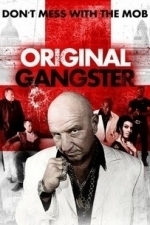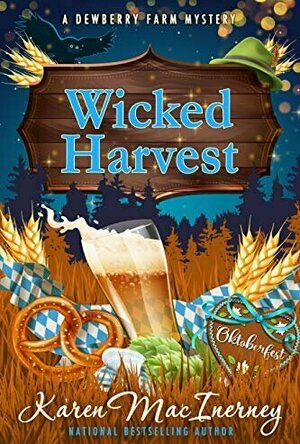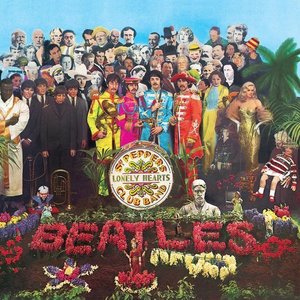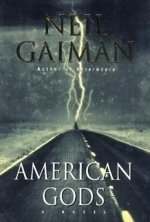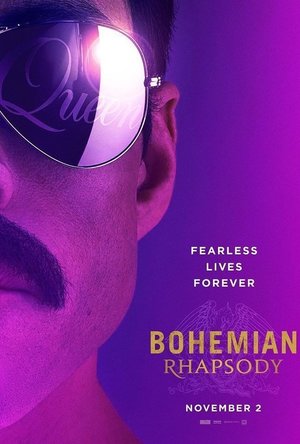Search
Mark @ Carstairs Considers (2488 KP) rated Wicked Harvest in Books
Oct 18, 2019
Who is Wicked Enough to Kill?
The town of Buttercup, Texas, has decided to host an Oktoberfest event this year. Naturally, farmer Lucy Resnick will have a booth selling wares from her farm, but the kickoff event is at the Sweetwater Brewery, and Lucy is going to be there as just a guest. The brewery is planning to reveal a new recipe at the event, but that reveal doesn’t quite go as planned. However, things take an even worse turn a little while later when Lucy and her boyfriend, Tobias, start to take a brewery tour and instead find a dead body. It is pretty obvious that it was murder, but who did it?
Not only do we have the murder, but we have several sub-plots, so this book is constantly moving and kept my attention the entire time. Things come together for a logical and satisfying conclusion. This series has always had a bit of a paranormal element to it, but it is much stronger here, and I felt the book was a bit weaker since it relied on that more to drive the plot. There’s also a major editing issue, with a scene with Lucy going over clues with a friend before she’s received them. The characters are wonderful as always. Since this is a quick read, we didn’t get a lot of new character development, but I still enjoyed the time with them I had, and the suspects are strong enough to keep us guessing. There are six recipes at the end that sound delicious, too. Fans of the series will enjoy this latest outing.
Not only do we have the murder, but we have several sub-plots, so this book is constantly moving and kept my attention the entire time. Things come together for a logical and satisfying conclusion. This series has always had a bit of a paranormal element to it, but it is much stronger here, and I felt the book was a bit weaker since it relied on that more to drive the plot. There’s also a major editing issue, with a scene with Lucy going over clues with a friend before she’s received them. The characters are wonderful as always. Since this is a quick read, we didn’t get a lot of new character development, but I still enjoyed the time with them I had, and the suspects are strong enough to keep us guessing. There are six recipes at the end that sound delicious, too. Fans of the series will enjoy this latest outing.
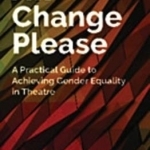
All Change Please: A Practical Guide to Achieving Gender Equality in Theatre
Book
Theatre needs to change. Everywhere - in its boardrooms, on its stages, throughout its repertoires -...
Holly Johnson recommended Sgt. Pepper's Lonely Hearts Club Band by The Beatles in Music (curated)
Rachel King (13 KP) rated American Gods in Books
Feb 11, 2019
I have only ever read one other adult book ( I don't count Coraline) by Gaiman, which was vastly different from this book in both style and mood - Stardust. A friend recommended I read this book many years ago since I like mythology. I found this book really had not much to do with mythology in the classic sense. Instead the characters that were pulled from mythology, such as Odin, Anansi, Horus, Bast, and Ganesha, among others, behaved like has-been D-list celebrities that struggle to survive in a country that is repeatedly described as "...a bad land for gods." The powers they rarely put on display were minimal and amounted to the same kind of "magic" as a skilled pick-pocket, con-artist, or amateur magician. The few times any real power is observed is once during the sexual scene of a re-invented Queen of Sheba (I'll spare you the R-rated details) and when the gods travel "behind the scenes," a state of existence that only the gods can enter.
While the names of classical mythology fit into the category of the Old Gods, there are New Gods that have taken root in America, born from cultural obsessions that have evolved and devolved over the years, such as railroads - a man dressed as a railroad conductor, television - a voice talking through Lucille Ball on a rerun of I Love Lucy, vehicles - stocky men that seemed to resemble vehicles themselves, and internet - a short, nerdy, nervous kid, among other American fixations and stereotypes.
In addition, one of the scenic devices used throughout the plot is what Gaiman's characters describe as places of power - side-of-the-road dives that road-trippers visit for no apparent reason, such as a place boasting the largest doll collection in America or the biggest wheel of cheese. And no, Disneyworld is not one of them.
One of the things I found interesting about this Gaiman-born world is that the Old Gods only exist in the New World when regular people travel from other countries and bring their memories and practices with them, even when they don't intend to stay themselves. The gods are "born" from these average people, and even though they can be killed by others, they don't die otherwise, but instead alternately starve or thrive based on the behavior of the people who live and die in the New World. They all have counterpart manifestations of themselves in the countries they are pulled from, but one's existence does not affect the other - though they do seem to be aware of each other.
All of this is merely the background of the main plot, which centers around the activities and travels of a seemingly mortal man with a single name, Shadow. I never did "get" the one-name thing, but whatever. Through Shadow's narration, the reader learns of an impending storm - a battle between the Old Gods and New Gods, the former fighting for survival and the latter fighting for dominance. Shadow works for a mysterious "Mr. Wednesday" and is randomly haunted by his dead wife, Laura, but otherwise seems to have little drive of his own for most of the book. In fitting irony, he has his own brand of "magic" - an obsession for coin tricks to pass the time from his days spent in prison - which I could never really follow the descriptions of.
To be completely honest, I truly did enjoy this book, though I am struggling to say exactly why. Perhaps I was fascinated by the "shadowy" way that Gaiman told the story, or how he developed this over-the-hill world of gods and goddesses that better resembled America's middle and poor classes' struggles for survival, money, and influence. Some of the personal touches that Shadow's character added to the plot made him at times surprisingly endearing. In addition, the way that Shadow seemed to address the reader at the very end of the book was so satisfying that I laughed out loud and had to read it again several times. Something about that just brought the book to life for me and help me to fully appreciate the versatile style of Gaiman. This is one of those books you don't have to fully understand to fully appreciate.
While the names of classical mythology fit into the category of the Old Gods, there are New Gods that have taken root in America, born from cultural obsessions that have evolved and devolved over the years, such as railroads - a man dressed as a railroad conductor, television - a voice talking through Lucille Ball on a rerun of I Love Lucy, vehicles - stocky men that seemed to resemble vehicles themselves, and internet - a short, nerdy, nervous kid, among other American fixations and stereotypes.
In addition, one of the scenic devices used throughout the plot is what Gaiman's characters describe as places of power - side-of-the-road dives that road-trippers visit for no apparent reason, such as a place boasting the largest doll collection in America or the biggest wheel of cheese. And no, Disneyworld is not one of them.
One of the things I found interesting about this Gaiman-born world is that the Old Gods only exist in the New World when regular people travel from other countries and bring their memories and practices with them, even when they don't intend to stay themselves. The gods are "born" from these average people, and even though they can be killed by others, they don't die otherwise, but instead alternately starve or thrive based on the behavior of the people who live and die in the New World. They all have counterpart manifestations of themselves in the countries they are pulled from, but one's existence does not affect the other - though they do seem to be aware of each other.
All of this is merely the background of the main plot, which centers around the activities and travels of a seemingly mortal man with a single name, Shadow. I never did "get" the one-name thing, but whatever. Through Shadow's narration, the reader learns of an impending storm - a battle between the Old Gods and New Gods, the former fighting for survival and the latter fighting for dominance. Shadow works for a mysterious "Mr. Wednesday" and is randomly haunted by his dead wife, Laura, but otherwise seems to have little drive of his own for most of the book. In fitting irony, he has his own brand of "magic" - an obsession for coin tricks to pass the time from his days spent in prison - which I could never really follow the descriptions of.
To be completely honest, I truly did enjoy this book, though I am struggling to say exactly why. Perhaps I was fascinated by the "shadowy" way that Gaiman told the story, or how he developed this over-the-hill world of gods and goddesses that better resembled America's middle and poor classes' struggles for survival, money, and influence. Some of the personal touches that Shadow's character added to the plot made him at times surprisingly endearing. In addition, the way that Shadow seemed to address the reader at the very end of the book was so satisfying that I laughed out loud and had to read it again several times. Something about that just brought the book to life for me and help me to fully appreciate the versatile style of Gaiman. This is one of those books you don't have to fully understand to fully appreciate.
Kirk Bage (1775 KP) rated Bohemian Rhapsody (2018) in Movies
Mar 3, 2020
In the search for a way to watch the 92nd Academy Awards live from Hollywood tonight I was led to a subscription for Now TV, which is basically the online platform for Sky Cinema. And there I found all the missing films I had yet to see from last year that aren’t available “free” on Amazon Prime or Netflix. I should really have worked it out before now that a free trial might be available, having assumed that a Sky subscription was beyond my means at the moment. Imagine my excitement to not only secure the Oscars but a 7 day pass to catch up on some big titles. It’s the small things in life…
Having made a 20 strong watch list, I wasted no time in heading straight for the Queen biopic, Bohemian Rhapsody, winner of 4 awards last February, including one for Rami Malek as Freddy Mercury that I applauded very loudly at the time, without having seen it, due to my love for him as Elliot Alderson in my favourite TV show of the last 5 years, the incredible and mindbendingly brilliant Mr. Robot.
My connection to Queen as a fan isn’t an especially strong one; I have always thought they were fine, and enjoyed their biggest hits as much as anyone. But it is the story, charisma and undeniable singing talent of Mercury that attracts me. From the opening scenes it is apparent that what we are going to get here is a fairly straightforward, by the numbers recounting of events, punctuated by some serious tunes and some glorious 70s fashions. Having read that this was the main criticism of it going in, it really didn’t bother me at all to find it wasn’t going to make bolder artistic and dramatic choices. It was very much about sitting back and enjoying the show!
In fact, there is something comforting and unchallenging about its format that I liked. The pattern of abc that is a) some background to Freddy’s life, b) a build up to how they came across their big hits, and c) a rendition of that hit, didn’t strike me as cheap, but rather unpretentious and to the point. The whole thing clipped along nicely with very little dead air; Malek is a joy to watch in every moment; the clothes and scenery of the 70s and later 80s is a treat; and the music stands for itself, with you often forgetting how good the tunes are until you hear them in this context.
Of course, at times it is almost laughable how well known facts and details are crow-barred into the narrative, with some of the darker elements glossed over, as if this were almost a Disney retelling. But, again, it doesn’t matter, because as an entertainment it is all so enjoyable. Not to say the dark side of the story isn’t touched upon, because it is to an extent, just that it is clear this is a celebration of a life and a talent, not an exposé. Which is fine. As with the superior Walk The Line, and the recently inferior Rocketman, we know a seedier story of Johnny Cash and Elton John exists, but we accept that revelling in the genius of the music is more fun than trawling through the trash.
Malek is a wonder to behold! It has to be said. Once you (and he) get used to the false teeth and bite down on the energy and drive of Mercury, it is impossible to take your eyes off him! He handles the dramatic moments and nuance of this fragile mind with ease, but it is the performances that stand out: his movement is so fluid and accurate that you forget at times you aren’t watching archive footage, which is some trick! Gwilym Lee and Ben Hardy as Brian May and Roger Taylor are also to be praised for this, despite having less to do. With Joseph Mazzello as John Deacon largely merging into the background inoffensively, much as his real life counterpart did.
There is some solid support too. Lucy Boynton is completely charming if largely uninteresting; Tom Hollander quietly steals several scenes as the lawyer who doesn’t just work for them but idolises them as much as any fan; and an unrecognisable Mike Myers is a lot of fun as the manager who missed out on the vision and lives to regret it. Honourable mention also to Allen Leech as the villain of the piece, who walks the tightrope of cartoonish nastiness with some skill, serving the story well in the latter half.
My favourites parts were, unsurprisingly, the genesis and evolution of the big tunes, which was invariably very satisfying. Love of My Life, We Will Rock You, We are the Champions and of course Bohemian Rhapsody are treated like holy texts, with fascinating detail and a reverence that never seems over-egged. Building to the climax of Live Aid; a twenty minute segment at the end of the film that brings a genuine lump to the throat. The magnitude of the event and its natural energy are so well realised, every minor foible of the film up to that point are forgiven, and you walk away from it feeling elated and glad that this moment exists in music history.
Artistically, it isn’t a movie to get too caried away about, but the art of creating a spectacle that pleases on a basic, uncomplicated level is. Director Bryan Singer knows a trick or two, and the trick here is what is left out. There just isn’t a moment to be bored, and I find myself wishing that films of this kind took a leaf out of that book more often. In conclusion, I think this movie will endure the test of time, which is a lot more than most biopic genre films can say. But who wants to live forever anyway?
Having made a 20 strong watch list, I wasted no time in heading straight for the Queen biopic, Bohemian Rhapsody, winner of 4 awards last February, including one for Rami Malek as Freddy Mercury that I applauded very loudly at the time, without having seen it, due to my love for him as Elliot Alderson in my favourite TV show of the last 5 years, the incredible and mindbendingly brilliant Mr. Robot.
My connection to Queen as a fan isn’t an especially strong one; I have always thought they were fine, and enjoyed their biggest hits as much as anyone. But it is the story, charisma and undeniable singing talent of Mercury that attracts me. From the opening scenes it is apparent that what we are going to get here is a fairly straightforward, by the numbers recounting of events, punctuated by some serious tunes and some glorious 70s fashions. Having read that this was the main criticism of it going in, it really didn’t bother me at all to find it wasn’t going to make bolder artistic and dramatic choices. It was very much about sitting back and enjoying the show!
In fact, there is something comforting and unchallenging about its format that I liked. The pattern of abc that is a) some background to Freddy’s life, b) a build up to how they came across their big hits, and c) a rendition of that hit, didn’t strike me as cheap, but rather unpretentious and to the point. The whole thing clipped along nicely with very little dead air; Malek is a joy to watch in every moment; the clothes and scenery of the 70s and later 80s is a treat; and the music stands for itself, with you often forgetting how good the tunes are until you hear them in this context.
Of course, at times it is almost laughable how well known facts and details are crow-barred into the narrative, with some of the darker elements glossed over, as if this were almost a Disney retelling. But, again, it doesn’t matter, because as an entertainment it is all so enjoyable. Not to say the dark side of the story isn’t touched upon, because it is to an extent, just that it is clear this is a celebration of a life and a talent, not an exposé. Which is fine. As with the superior Walk The Line, and the recently inferior Rocketman, we know a seedier story of Johnny Cash and Elton John exists, but we accept that revelling in the genius of the music is more fun than trawling through the trash.
Malek is a wonder to behold! It has to be said. Once you (and he) get used to the false teeth and bite down on the energy and drive of Mercury, it is impossible to take your eyes off him! He handles the dramatic moments and nuance of this fragile mind with ease, but it is the performances that stand out: his movement is so fluid and accurate that you forget at times you aren’t watching archive footage, which is some trick! Gwilym Lee and Ben Hardy as Brian May and Roger Taylor are also to be praised for this, despite having less to do. With Joseph Mazzello as John Deacon largely merging into the background inoffensively, much as his real life counterpart did.
There is some solid support too. Lucy Boynton is completely charming if largely uninteresting; Tom Hollander quietly steals several scenes as the lawyer who doesn’t just work for them but idolises them as much as any fan; and an unrecognisable Mike Myers is a lot of fun as the manager who missed out on the vision and lives to regret it. Honourable mention also to Allen Leech as the villain of the piece, who walks the tightrope of cartoonish nastiness with some skill, serving the story well in the latter half.
My favourites parts were, unsurprisingly, the genesis and evolution of the big tunes, which was invariably very satisfying. Love of My Life, We Will Rock You, We are the Champions and of course Bohemian Rhapsody are treated like holy texts, with fascinating detail and a reverence that never seems over-egged. Building to the climax of Live Aid; a twenty minute segment at the end of the film that brings a genuine lump to the throat. The magnitude of the event and its natural energy are so well realised, every minor foible of the film up to that point are forgiven, and you walk away from it feeling elated and glad that this moment exists in music history.
Artistically, it isn’t a movie to get too caried away about, but the art of creating a spectacle that pleases on a basic, uncomplicated level is. Director Bryan Singer knows a trick or two, and the trick here is what is left out. There just isn’t a moment to be bored, and I find myself wishing that films of this kind took a leaf out of that book more often. In conclusion, I think this movie will endure the test of time, which is a lot more than most biopic genre films can say. But who wants to live forever anyway?
